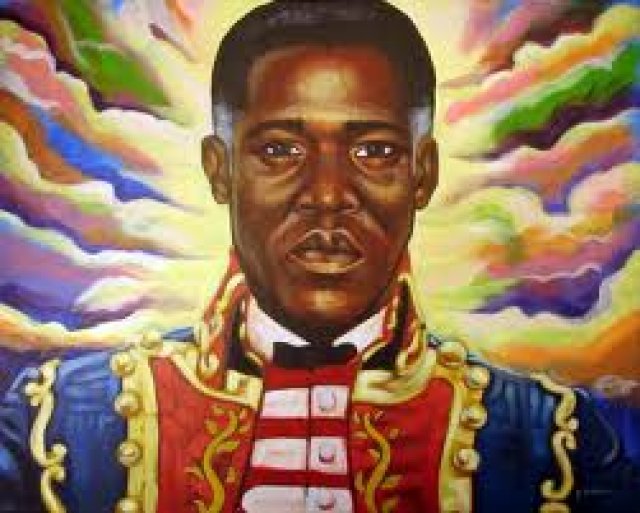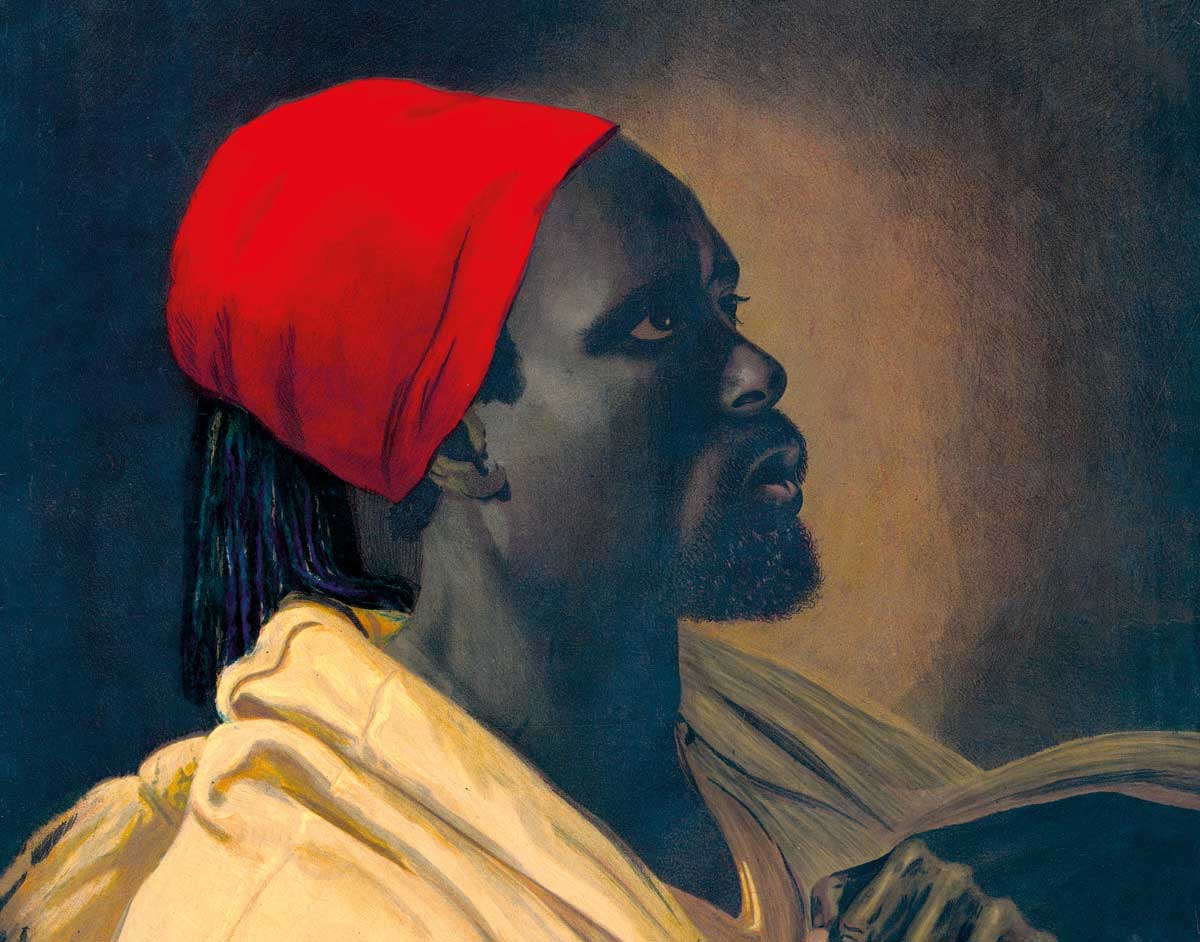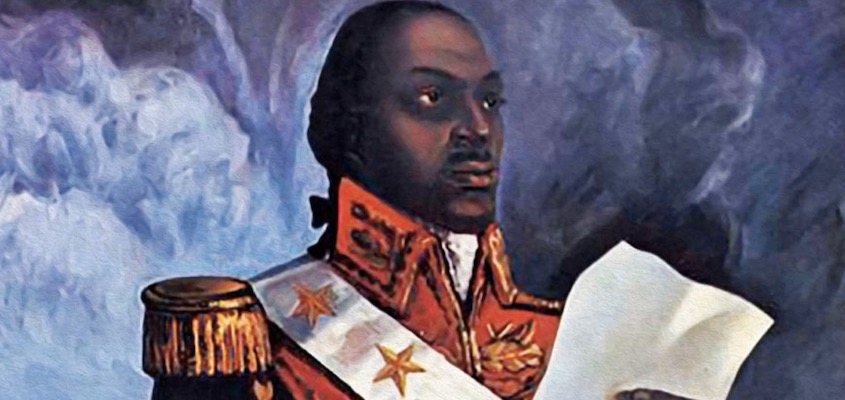Latin America
Related: About this forumHaiti - 220th of the death of Toussaint Louverture : Ceremony of floral offering
08/04/2023 09:23:14
Friday, April 7, 2023 as part of the commemoration of the 220th anniversary of the death of Toussaint Louverture, Prime Minister a.i. Ariel Henry, in the presence in particular of members of the Government, the Judiciary, the National Police of Haiti, the Armed Forces of Haiti and representatives of the diplomatic corps, presided over a floral offering ceremony at the foot of the monument erected in memory of the precursor of independence.
Speech by Acting Prime Minister Ariel Henry :
"Toussaint Louverture is a man with a thousand intertwined destinies that have given him access to this universal influence due to all the great leaders. Our national and universal hero was in step with the times.
Young Haitian people. We are members of a generation that inherited a great disaster because of many decisions made by visionless and courageous leaders. It is important to understand the work of Toussaint and to be inspired by it. Toussaint is a hero because he had the courage, the determination, the will to defend, and the intelligence, everything in which he believed.
It is with pride and a sense of republican duty that I join you today in paying tribute, commensurate with his greatness in the history of Haiti, to Toussaint Louverture, national hero and precursor of independence of our country.
Toussaint Louverture is an extraordinary character. His notoriety and political stature, at the end of the 18th century and the beginning of the 19th century, crossed the seas and made him a leading political actor in the history of blacks and colonization as a successful system of the cruel exploitation of man by man.
More:
https://www.haitilibre.com/en/news-39250-haiti-220th-of-the-death-of-toussaint-louverture-ceremony-of-floral-offering-speech-pm.html

Toussaint Louverture


Black Spartacus: The Epic Life of Toussaint Louverture
David A Bell 09 Sep 2020

Black Spartacus: The Epic Life of Toussaint Louverture
The fierce fighter against slavery defeated European armies but died in a cold French prison.
“Only in the past quarter-century has the Haitian revolution attracted sustained scholarly attention in North America and Europe.”
No figure from the 18th-century “age of revolution” had as extraordinary a life as Toussaint Louverture. He was born a slave in the 1740s, in one of the cruellest and deadliest environments humans have ever created: the French Caribbean colony then called Saint-Domingue (now Haiti), where rapacious white planters worked hundreds of thousands of captive people to death to feed Europe’s growing taste for sugar and coffee. In the early 1790s, Toussaint helped start the largest and most successful slave rebellion in history and then moulded the rebels into a remarkably effective army.
In 1794 he agreed to join forces with France’s radical first republic, which had proclaimed the abolition of slavery in its overseas empire. As a French army general and the colony’s lieutenant governor he defeated a series of enemies, including British invaders, and saved Saint-Domingue for France. By the end of the decade he had outmanoeuvred a series of French officials, overcome black rivals, emerged as the colony’s uncontested strongman, and brought it to the brink of independence. In response, France’s new leader Napoleon Bonaparte sent a massive military expedition to reassert full French control. It ultimately failed, leading to Haitian independence at the start of 1804, but it did manage to defeat Toussaint and take him prisoner. He died in the cold, lonely Fort de Joux in the Jura mountains of France in 1803
“Toussaint helped start the largest and most successful slave rebellion in history.”
The story is astonishing – but also astonishingly difficult to write about. Sources for Toussaint’s life before the rebellion are scant and scattered. Historians only discovered in the 1970s that he had gained his freedom in the 1770s and had himself briefly owned at least one slave. Much more documentary information about him survives, but it is dispersed among dozens of archives in several countries. Haitian historians have never had the resources to compile, let alone edit and publish it in the way that American historians have done for their “founding fathers”. Only in the past quarter-century, thanks to the academy’s turns towards “global” and “subaltern” histories, has the Haitian revolution attracted sustained scholarly attention in North America and Europe.
Toussaint’s previous biographers have drawn on the surviving shards of information to produce wildly different portraits. For the great Trinidadian intellectual CLR James, Toussaint was an anti-imperialist freedom fighter avant la lettre. The conservative French diplomat Pierre Pluchon cast him, much less convincingly, as an acquisitive aspiring landowner interested in exploiting the plantation system for his own benefit. Most recently, the French-American historian Philippe Girard has emphasised Toussaint’s ruthlessness and tendencies towards dictatorship.
More:
https://blackagendareport.com/black-spartacus-epic-life-toussaint-louverture